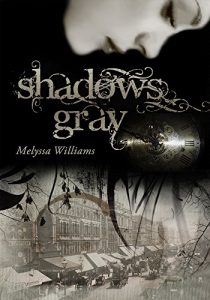Ghostwriting for someone (or several someones) is legit gig, if you can get it. But do you even want it?
Some people are weirded out by the whole idea, and you may be one of them. Answering some basic questions about the whole process should help you decide which side of the fence you’re on. After that, we will look more closely things you can do to start landing ghostwriting jobs.
Should I Be a Ghostwriter?
ISN’T IT MORALLY … WRONG?
Well, it is on the shady side of gray, most would agree. Allowing someone else to take the glory (should there be any) for your work would wig some people out.
Keeping your mouth shut in those times – whether it’s when the work is being praised or critiqued – isn’t easy, but it is completely non-negotiable and imperative.
And it isn’t as though you aren’t getting something out of it: you got paid.
HOW WOULD I BUILD UP MY RESUME IF I CAN’T TAKE CREDIT FOR ALL THE THINGS I’VE GHOSTWRITTEN?
You can still build up your writing resume in several ways. Three big ones: Call yourself a “freelance writer”, ask your employer(s) to list you elsewhere on their work, and continue to write under your own name as well.
It isn’t wrong to list your ghostwriting abilities on your resume; it’s only wrong to list them by name. For instance, you can say, ‘Author of several best-selling novels written under other names.’ You can’t say, ‘Real author of all of Michael Roman’s best-selling novels.’
HOW COULD I BRING TO LIFE SOMEONE ELSE’S VISION?
You’d be surprised. There’s a bit of freedom in writing someone’s story. You don’t have to love every idea or plot-twist or character. They don’t technically belong to you anyway. Plus, toying and playing around with a plot that you in a million years wouldn’t have thought of can be a lot of fun.
You do however, have to have some faith in your employer’s storyline. If you completely despise it, this is not the job for you.
HOW DO I GET PAID?
This is entirely up to you and your employer. Be very clear from the beginning what you expect. Don’t leave anything up to interpretation. Don’t accept a set price for a full book unless you have agreed what a full book is: 35,000 or 90,000 words?
Most ghostwriters will send in chunks or chapters at a time for approval, then receive a lump payment for that portion, until the entire novel is completed. Or you can be paid in one lump sum when you type The End.
Look at your budget, your time, and get everything in writing.
DO FAMOUS AND/OR BEST SELLING AUTHORS EVER USE GHOSTWRITERS?
Yes, sir/ma’am. They do.
TIPS FOR GHOSTWRITERS
Okay, now you’re either in or out, let’s talk how to get started and what ghostwriters need to do to stay on top of their game.
find ghostwriting jobs
Finding ghostwriting jobs can be a matter of word of mouth, using freelance job search sites, and advertising and marketing oneself.
Here are a few of the better sites to find ghostwriting jobs:
- Upwork
- Toptal
- Freelancer
- Journalism Jobs
- Craigslist (yes, it is actually a great place for freelancers)
- Guru
Get yourself some business cards to hand out to potential clients, network through your social media platforms, join groups on Facebook, add your ghostwriting abilities to your Linked In profiles and other business building sites. Once you’ve landed one job, it gets easier because your resume is building.
Stay in your moral comfort zone
Make sure you’re very comfortable with everything the potential employer is asking you to do.
Examples:
- writing a genre you’re unfamiliar with
- writing a non-fiction tutorial on a subject you know nothing about
- the pay schedule, amount, and time line
- allowing enough time to turn in a finished product you can be proud of
Know Your Genre
Be proficient and comfortable with the genre you are agreeing to work in. Don’t claim to be an expert in erotica if you’re not! Same goes if your client wants a very specific type of science-fiction, cookbook, or any other genre that is clearly defined.
If you don’t know the genre well (perhaps it’s a genre no one particularly knows well, but you’re willing to learn), do the footwork and research. Be teachable.
Ask about proofing & editing
Ask if the proofing and editing is something that will be left up to another person, or if you are expected to turn in a perfectly proofed copy.
If it is the latter, adjust your price substantially.
If it is the former, remember to be professional and don’t turn in a manuscript chock full of errors and grammar mistakes. This is your reputation. It’s worth the time and effort to do all things well, even if no one knows your identity but your employer.
Talk Timelines
What will be your deadline(s)? Don’t promise to write an 85,000 word count book about an Egyptian princess in two months if A.) you don’t know anything about Egyptian life, and B.) you can’t churn out a good novel that quickly even if you were the leading expert about Egypt.
Benchmarks are variable, according to you and your client’s capabilities and expectations. Be clear with one another, hash it out, make suggestions, and communicate, until both of you are in agreement.
For a 75,000 word count, comedic, sci-fi novel I ghostwrote, our timeline looked something like this:
First six weeks:
- Contract designed, approved by both parties, and signed
- Synopsis delivered
- Character’s bios, technology talking points, and plot twists delivered
- First rough draft of first third of novel delivered
Next four weeks:
- Second installment (roughly the second third) of novel delivered
- Changes made per client’s wishes to first installment
Next four weeks:
- Last installment (last third of novel) delivered
- Changes made per client’s wishes to second installment
Last week before due date:
- Edited, proofed (to my specifications and capabilities: client also paid for a third party to do this as well), and delivered.
- Bonus paid for delivering a satisfying novel on time.
Yep, an entire novel in approximately three months time. It was difficult, but totally doable! (And yes, I worked outside the home 20 hours per week, and took care of my household of five at the same time.)
Be specific about privacy and confidentiality
If the piece you are ghostwriting is some sort of slightly boring and dull tutorial, or an eBook about how to clean wood floors, your employer may care less about your loose lips.
But if you are ghostwriting an entire novel, expect to sign away all of your rights and ownership to it. Mentioning to even one person that you’re the true author of What-have-you and So-and-so will keep you from ever working as a ghostwriter again.
Remember: you get paid. That is your entire reward. No glory, no recognition, no praise, no book signings. Just the cash.
Fully understand the job requirements
Find out ahead of time – before you sign anything! – how much leg work is involved.
For instance, do they have a rough draft of their manuscript? If not, do they have notes? If not, do they have just the merest idea of an idea (I want the heroine’s name to be Sandy and there should be a dog named Bobo and they live in Italy. Oh, and add recipes!).
If your job is non-fiction, a tutorial, or a how-to book, be realistic about how much research you will need to do, and adjust your price accordingly.
Put the details in a contract
Hash out everything in your contract. A real, signed, paper or electronic contract, not a word of mouth or “handshake” contract.
This is for your protection and the protection of your employer. It’s not a bad idea to have a lawyer look it over either.
Stick to the vision
Your employer has a vision: it’s your job to make it come to life.
Don’t like the ending he/she tells you to write? Too bad. Write it anyway, even if you don’t ‘feel it.’
It may just be a job to you, but to them, it’s important, maybe something they’ve been dreaming about their whole life. And remember, it’s not up to you to sell it, so really it doesn’t matter if you’re right and they’re wrong.
Do you want co-author credit?
A co-author is different than a ghostwriter. If you feel strongly about needing your name on the cover, then finding work as a co-author will be a better fit for you.
If you are a true ghostwriter, your name will appear exactly this many times in the novel, cover, publisher’s site, and marketing materials:
Zero.
How much to charge
Do your research about how much to charge for your services. Obviously if you have no experience, whether as a ghostwriter or just a writer in general, you will need start low.
Average ‘ghosts’ make $10,000-$50,000 for novels (both fiction and non) in the word count area of 50,000-70,000. Cha-ching! And that poll was taken in 2010.
If you prefer to go by word and not a lump sum, bid between .10 and .25 a word. Most employers prefer to pay by the project; it’s simply easier and has less surprises than paying by the word (which can fluctuate every single time you edit) or by the hour (which is hard to determine and is wildly different for each writer).
WHAT’S IN IT FOR ME, BESIDES A DECENT INCOME?
It’s nice to only have one job: write the book. Once it’s finished to your client’s satisfaction, it’s quite literally out of your hands. The job has only just begun for them, but you’re free to take on something else (or not). You don’t have to worry about marketing, selling, cover art, publishing, proofing, etc.
Conclusion
In short, ghostwriting is a legitimate way to make a living with your someone else’s words.
It’s worth trying! Get your feet wet and see if ghostwriting is the perfect job for you.
PIN IT






